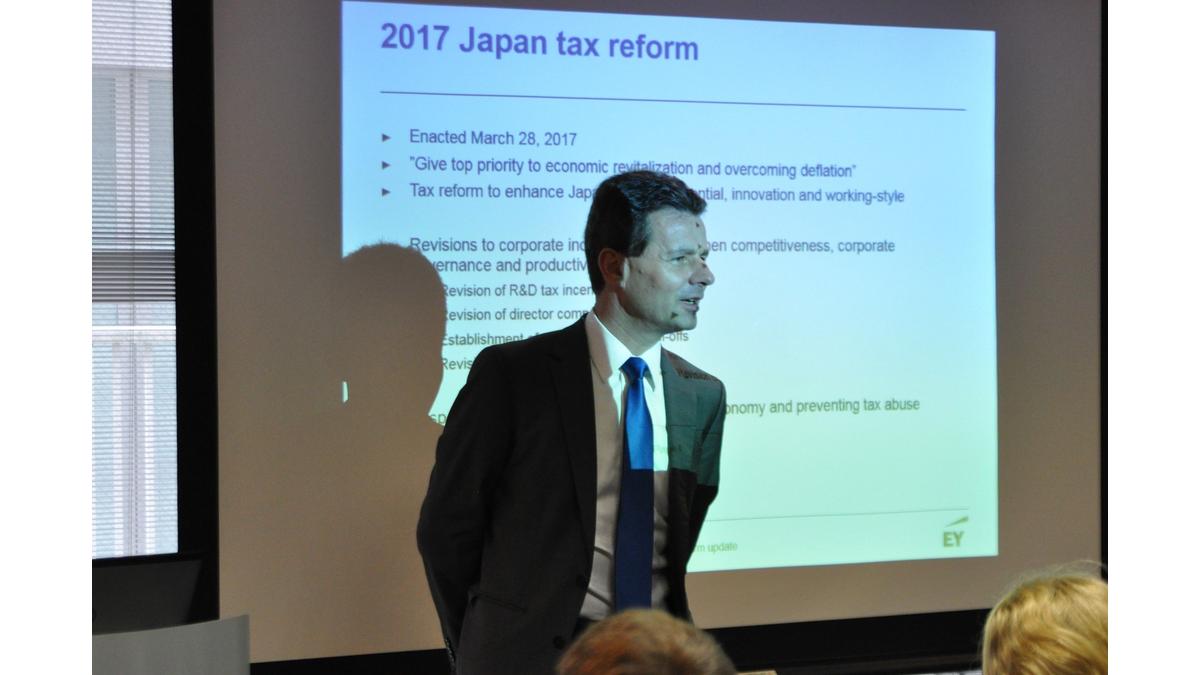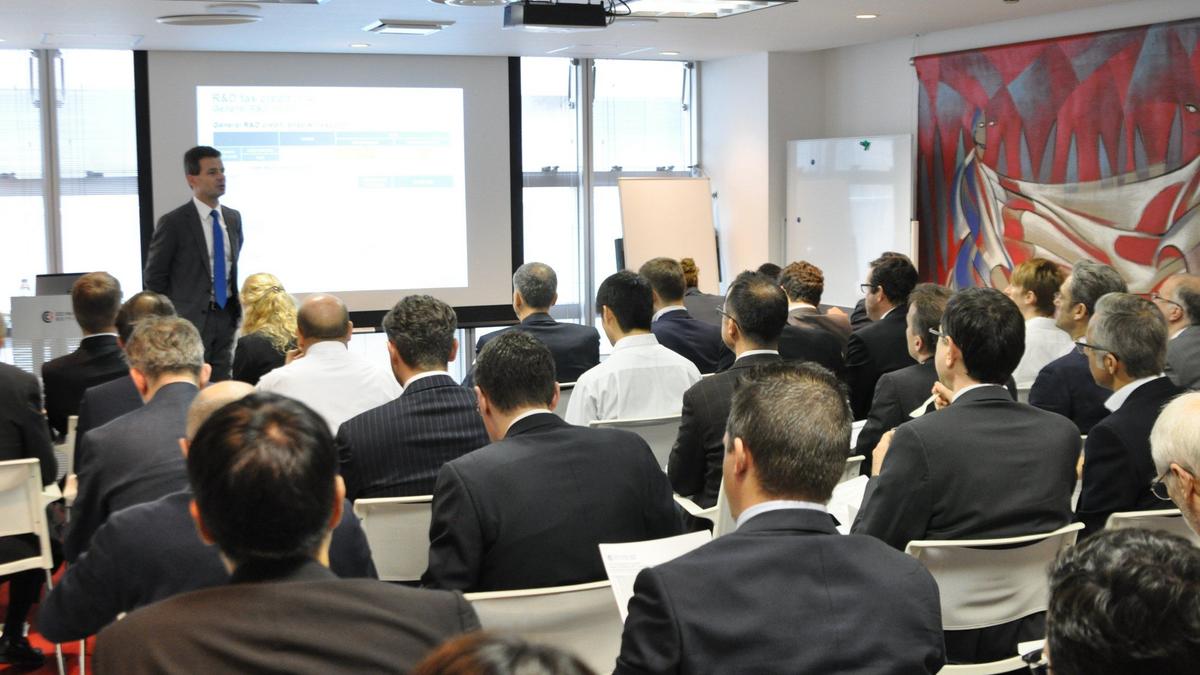Informes de eventos • Comités • Event report • Committees • Tidigare event • Kommittéer • Balanço Eventos • Comissões • Rendezvény beszámolók • Klub • CCIFJイベント • 委員会 • Tidligere arrangementer • Komitéer • Etkinlik raporları • Komiteler • Bilantul evenimentului • Grupuri de lucru • Referat fra arrangementer • Komiteer • Terugblik op evenement • Panels • Izveštaji sa događaja • Odbori • Огляд заходів • Комітети • Отчет о мероприятиях • Απολογισμός εκδηλώσεων • Επιτροπές • Комитеты • 행사 • 위원회 • Raportit tapahtumista • Komiteat • Naše podujatia • Výbory • Равносметка за събитие • Комитети • Përmbledhja e eventeve • Komitete • Ze života komory • Platformy • Rückblick auf... • Komitee • Bilans d’évènement • Comités
Japan Tax Reform 2017: what you need to know

On May 18, 2017, the Tax and Regulations Committee, chaired by Philippe Dalpayrat, welcomed Hans-Peter Musahl, Partner at Ernst & Young Tax Co. and Juergen Dumont, Manager at Ernst & Young Tax Co. to the French Chamber for a conference on the 2017 Japan tax reform. The very popular seminar welcomed over forty-five participants, and introduced the enacted reform and provided insights into major amendments, affecting both individuals and corporations.
Enacted March 28, 2017, the reform aims at stimulating the economy through higher corporate spending in R&D, hiring and increasing compensation. The changes it will bring about, among others, are the following:
- The scope of tax credits granted for general R&D expenses will expand, to include so-called ‘services R&D’ such as development costs for Big Data, Internet of Things (IoT), and Artificial Intelligence
- The tax credit granted for general R&D expenses will range from 6% to 14%, depending on the rate of increase or decrease in R&D expenses (SMEs will be entitled to higher rates)
- Tax credit conditions for increases in salaries will be tightened for large companies, requiring among other criteria a minimum average year-on-year increase in salaries of 2%
- Certain spin-off transactions to re-organize corporations will become ‘tax-qualified’, i.e. delaying the taxation on gains and dividends, even where shareholding is spread across a large number of shareholders, with no single controlling shareholder
- Internally generated goodwill will no longer be subject to mark-to-market valuation, e.g. when entering into tax consolidation through a non-qualified share for share exchange. Goodwill acquired in an acquisition will have to be amortized on a pro-rated monthly basis in the year of acquisition (full-year amortization in the first year no longer available)
- Regularly paid compensation rules for directors will be relaxed, including schemes where the compensation is defined on a ‘net’ basis, after deducting withholding taxes, social insurance, etc.
- Consumption tax increase to 10% has been postponed to 1 October 2019, introducing as of the same date a split consumption tax rate. Foodstuff (no dining) and non-alcoholic drinks will thus stay at a rate of 8%
- Previously introduced requirements to submit so-called ‘country-by-country reports’, ‘master files’ and ‘local files’ will phase in step-by-step
- Capital gains on selling securities acquired after 1 April 2017 will become taxable also for non-permanent residents. Exceptional non-permanent resident’s taxation with any capital gains made in Q1 of 2017
As for inheritance and gift taxes, amendments where stated include the following:
- Japanese inheritance tax applies if either the decedent or the heir has a residence in Japan. The recipient (heir) of inheritance is subject to taxation, not the decedent’s estate
- Foreigners having stayed for up to 10 years on a table 1 visa (i.e. work-related visa, etc.) in Japan over the last 15 years will become exempt from Japanese Inheritance and Gift Tax with assets located overseas
- Foreigners having stayed for more than 10 years over the last 15 years will become subject to Inheritance and Gift tax for 5 years after departure from Japan, including overseas assets
"The rule to be subject to inheritance and gift taxes for worldwide assets even after having left Japan is controversial" stated Hans-Peter Musahl. "Therefore," he added, "the bodies from the international community have taken up this topic to address it with the Japanese government".
For details and further explanations, please download the presentation slides by clicking here.



